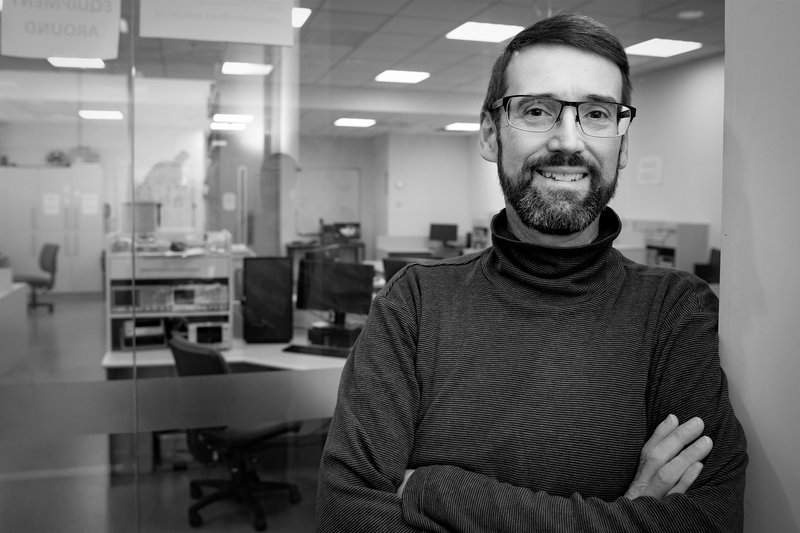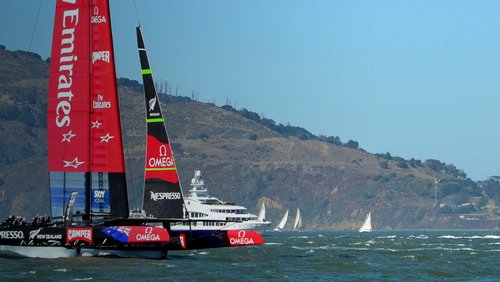11 Oct 2021
This month we hear from Dr James Quilty, of Te Herenga Waka – Victoria University of Wellington.
What’s your role at the University?
My current role is Engineering Programme Director in the School of Engineering and Computer Science at the Wellington Faculty of Engineering, a role which brings me into contact with all the fields within our programme: Software, Cybersecurity, Electrical and Electronics engineering. My recent teaching includes courses in software, electronics and core engineering practice courses.
However, I will step down from this role at the end of this year, returning to being a Senior Lecturer and taking a 12-month research sabbatical.
What got you interested in engineering?
I’ve always been interested in science, particularly the intersection of physics and computing; science and mathematics. Those interests sit very comfortably with modern engineering, which both relies on and creates technologies combined from electronics and software.
The area where applied physics and engineering are difficult to distinguish is a comfortable area for me.
Why did you enter the world of academia and how long have you been teaching?
I’ve never left academia after entering as an undergraduate student some years ago. I've always felt an affinity for the intellectual freedom and curiosity-driven research that academia provides.
A brief period of working as a programmer in the industry at the end of my undergraduate degree confirmed my interests lay down the academic path. I've been teaching on-and-off throughout my career, with my most intensive period of lecturing being from 2016 to present.
What’s the best thing about teaching students?
I find it’s the combination of passing on what I know, as well as the opportunity for me to learn more about the subject. Collaborative project-based work with students is one of the best ways to learn and can be one of the most effective ways of teaching in an age where information is so readily available. But the skills required to manage and process information are always changing.

Dr James Quilty
What would be your dream student project to supervise?
I think I'm supervising one of those now! I have a project in collaboration with a regional council, which involved two students working on the development of the electronics and software for a prototype device.
For the prototype to perform to a high standard, both software and electronics must be highly integrated. The project strongly encourages the students, who specialise in software or electronics engineering, to develop skills and perhaps even some expertise in areas outside their specialisations. That kind of project is my dream project.
Why are you a member of Engineering New Zealand?
Being a part of the professional body representing me and the discipline I'm working in is important to me. As an academic, I think membership and participation in the professional body is also a way to both establish and maintain links with the engineering community – after all, most of the students I teach join that community.
Why should all engineers have a broad understanding of IT and IT issues?
I think the statement “all companies are tech companies” is now a truism, and engineering as a discipline is as subject to the trend as any other.
Information technologies, be they electronics software or data, are ubiquitous – and the pace of change in technology is showing no signs of slowing. Whether directly or indirectly, every organisation relies on information technologies for both its current and future operations.
Automation, particularly automation of processes and the algorithms required for processing, are already well-established parts of engineering. To operate as professionals in contemporary organisations, engineers need a broad understanding of the information technologies on which the organisation relies.
What’s your favourite piece of engineering in Wellington?
The Macaskill water collection and supply lakes at Te Marua, just North of Upper Hutt.
The blending of the twin lakes with the foothills of the Remutaka Range create a quiet and pleasant environment to visit, and the displays of the engineering involved in Greater Wellington Regional Council's water storage and supply system are impressive.
What do you do in your spare time?
I mostly spend time at home with my family, working on and around the house, helping with homework and playing games on occasion with my children. When following my own interests, my personal projects involve (unsurprisingly) software and electronics.



